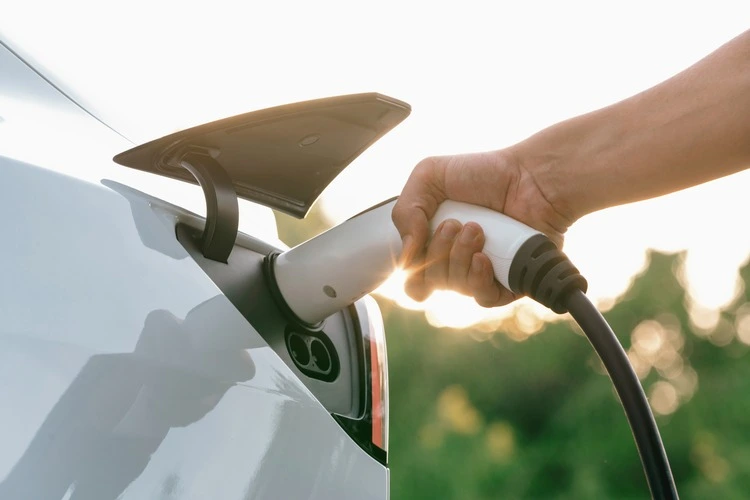
Change diets, get four in five cars to be electric & install more heat pumps – all solutions hoped to push UK closer to net zero
By
By 2050, the UK Government aims for a net zero nation. In short, this means that total greenhouse gas emissions will be equal to emissions removed from the atmosphere. The first major economy to forge such a goal, now around 145 other countries have followed suit in a bid to become net zero within the next quarter-of-a-century.
The UK has made significant progression in its climate-friendly journey; in 2023, its total greenhouse gas emissions were 49.5 per cent lower than in 1990. Still, it has a long way to go to reach its ambitious target.
So, what exactly does the UK need to do in order to meet such a tall order? In the Climate Change Committee’s (CCC) latest report published this week – which focuses on changes the nation can make by 2040 – the broad answer is ‘a lot’.
Here we delve into three of the organisation’s recommendations, and uncover how the UK are currently performing in these three areas – meat and dairy consumption, heat pumps and electric vehicles:
Eat less meat & dairy

To become net zero by 2050, the CCC outlines that the public will need to reduce consumption of meat and dairy products by around 35 per cent by 2050, compared to 2019 levels.
According to the report, if Britons ate just 260g less meat each week – roughly equivalent to two chicken breast fillets – that would help to meet net zero goals. That’s because producing meat is a major source of greenhouse gases – making just one kilogram of beef, for example, creates 70kg of emissions. In comparison, producing the same quantity of peas results in just one kilogram of greenhouse gases.
A reduction in people’s meat consumption, explains heat of net zero at the CCC Emily Nurse, wouldn’t be far removed from the trajectory that is being seen in the UK already. A study back in 2023 showed that UK meat consumption is at one of the lowest levels since records began, reaching its all-time low in 2022. However, to meet net zero goals, future declines would need to occur more rapidly than the long-term trend shows.
A range of factors contribute to the declining numbers; from environmental concerns to health reasons as increasing evidence suggests high consumption of red and processed meats probably increases the risk of certain diseases, like bowel cancer.
Ramp up heat pump installations

Across the UK, home heating generates around 18 per cent of the country’s total greenhouse gas emissions. The most common way to heat a home in the UK is via a gas boiler, which release large amounts of emissions to operate. Replacing these boilers with greener alternatives like heat pumps will help to significantly reduce greenhouse gases – and help the UK reach its net zero goal – since they heat homes by absorbing warmth from the air, ground or water instead.
As such, one of the CCC’s recommendations is to ramp up heat pump installation in the country so that half of all UK homes have one fitted by 2040.
One of the reasons why heat pumps have been slow to take off in the UK is their high price point. To combat this, the CCC also recommended that policy costs – funding for social and environmental schemes – are removed from electricity bills. Such a change would cut prices by around 19 per cent, allowing consumers more financial leeway to switch to greener alternatives like heat pumps.
More electric cars on the road

A further recommendation by the CCC in the latest report is to get more electric cars onto UK roads, with a goal that four in five cars will be electric by 2040.
Already, the number of electric vehicles is growing in the UK, rising steadily since 2015. Last year, registrations of EVs in the country topped those of Germany, with UK sales at a sizeable 382,000 in 2024.
On top of this, a vast number charging points are being developed in the UK – more than 20,000 were added in 2024 alone – helping to turn the tide on the common worry of potential buyers: a lack of public charging.
Despite this, there is still a long way to go to reach the CCC’s goal. Out of the estimated 34 million cars on UK roads, just under 1.4 million are electric – a 4.09 per cent share of the total market.




